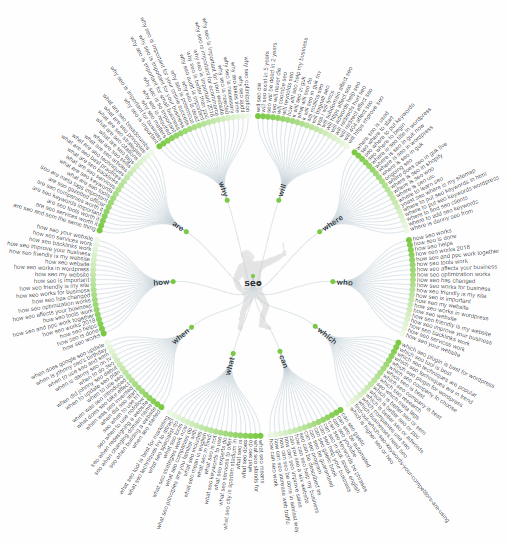Topical Authority – What Is It and How Can SEO Benefit From It?

Topical authority is a relatively recent concept whose premise appears to be rather uncomplicated, however, it’s never the less wrong. This complex issue involves certain hazards and requires proper analysis as well as thorough preparation to produce the expected results. But what is topical authority and why is it important for SEO? Want to find out? Keep reading our today’s entry!
Topical authority – what is it and why does it matter?
Topical authority is simply a concept suggesting that Google ranks better those websites whose content is valuable and related to the topic of the site.
So to put you in the picture – a dental clinic running its blog shares valuable publications and posts entries concerning dental industry. The main idea of topical authority is to promote reliable and profound information that is valuable for users and easily accessible on a specific website or blog. Top quality texts, fully comprehensive data and a sizeable amount of related terminology are only a few of the requirements of creating valuable content.
Generally speaking, topical authority is mainly about being knowledgeable in given areas. It involves broad and deep understanding of the subject, as well as a mastery of all related concepts which have an impact on producing a text that is coherent and valuable for users.
In fact, artificial intelligence is responsible for the popularity of topical authority, as the concept wouldn’t be able to become so influential without it. Now we’re talking mainly about machine learning and understanding of natural human languages. Presently, algorithms do very well at recognizing the text and matching a relevant topic to it. Consequently, Google pays less and less attention to keywords, but instead it’ll focus on topicality, shared knowledge and expertise.
But wait… Does it mean that you should no longer include keywords and keyphrases in the content you create? And what to focus on? Should you discuss the topic at length or maybe it’d be better to take care of the keywords? Don’t worry – the concept of keywords and keyphrases is still valid, even despite the fact that Google can easily detect unfair activities such as keyword stuffing. It’d be perfect to find a happy medium, meaning to create valuable content in which the most relevant keywords appear naturally. Then, it can be stated for sure that your efforts will pay off and the website will be displayed on high positions in the search results.
Let’s give an example of an online store selling frying pans. The ideal content of its website doesn’t include only the frying pans but it also provides information such as their different types, construction, comparisons, customers’ opinions, brand diversity, advantages and disadvantages or, finally, pieces of advice on which model will be the most suitable for given circumstances. To conclude – topical authority is about exhausting the subject.
It’s a universally acknowledged truth that Google rewards websites whose content is valuable for their users. The concept of topical authority fits this idea perfectly – it provides a wide range of keywords and at the same time generates the finest content that results in being ranked high in the search results and in improving traffic to the site. If users wish to broaden their horizons and learn more on a specific subject, they won’t have to search for it in different places – you hand all the necessary information to them on a plate. Google can improve your position and rankings thanks to the fact that it’s able to find out whether your website provides additional content that meets the users’ expectations. So there is only one answer to the question whether it’s worth taking care of topical authority of your website and this answer is “yes, it’s absolutely worth it!”.
Understanding and analyzing your content in terms of topical authority is possible due to Google Panda and Google Hummingbird – two updates of Google algorithms.
The first one is responsible for broadly understood website content. Update 4.0 aims at creating content describing a given subject in a way that is not only unique but also appealing and comprehensive. Moreover, elements such as the author’s authority, the length of the text or the presence of useful links (e.g. to social media) are also very significant.
On the other hand, the role of Google Hummingbird is to examine the context, meaning and the already mentioned natural human languages. This update is considered to be extremely radical and already at the time of introducing it, it made people pay less attention to keywords. For the first time in the history of SEO the content and its quality was more important than keywords or keyphrases. Apart from the fact that websites were no longer optimized for specific keywords, their owners started publishing longer texts such as categories or products descriptions.
In a nutshell, the task of Google Hummingbird is to match a specific topic to the text on the website, and then the website content is examined by Google Panda. So as you can see, although these updates were introduced some time ago, they’re still fully applicable and popular. Moreover, the concept of topical authority emerged due to the fact that Google Panda and Google Hummingbird are still constantly updated.
How to create content in terms of topical authority?
Google aims at meeting its users requirements in the best possible way by providing them with websites that fully answer the search queries. This is why it’s essential for the algorithms to comprehend the topics and terminology in which given website expertises. For Google, writing one article about SEO doesn’t make you a specialist, therefore you’re less credible than a website with hundreds of articles on a given subject or plenty of external links and posts on social media platforms. Keywords still matter, however they’re past their prime and if you want to act according to the principles of topical authority, keyphrases shouldn’t be the main focus of your actions. Don’t perceive keywords just as lists of phrases and instead try to pay attention to:
- Users’ intentions – and in this case you need a broader perspective. What information will the people visiting your website search for next? Maybe while reading about the basic volleyball rules they’ll realize that they wish to find out more about specific positions or strategies? Try to exhaust the subject and provide the most obvious information that might be sought after by the users.
- Expert knowledge – perhaps it’s a good idea to discuss a given subject in a form of an interesting guideline or a technical article. This way, you can act as an expert which should quickly be noted by Google. Explain the most complicated terminology so that the users can comprehend your website content even better.
Remember that content created in accordance with the principles of topical authority should include a lot of natural internal links because they help users understand the discussed topic.
LSI, meaning keywords related semantically
When creating content in compliance with topical authority, you need to remember about LSI keywords (Latent Semantic Indexing). These uniquely named keyphrases ought to be connected to the subject area of your website.
For instance, how will you know whether a given site is about Apple devices or simply about fruit? LSI keywords facilitate the understanding process of both users and Google robots. During writing your texts based on this type of keywords remember to use them naturally and avoid keyword stuffing because otherwise you may be punished by Google. The ability to apply Latent Semantic Indexing naturally lies at its heart. Help of various professional tools may be essential to use LSI keywords properly – Answer The Public will suggest you phrases that are related to a particular keyword.
Topical authority – how does it affect SEO?
It can be safely stated that topical authority affects SEO of your website. This influential concept requires adaptability to encourage users to choose your website from hundreds of others. If being ranked high in the search results is your objective, take the principles of topical authority into account – valuable and comprehensive content is your key to success.



